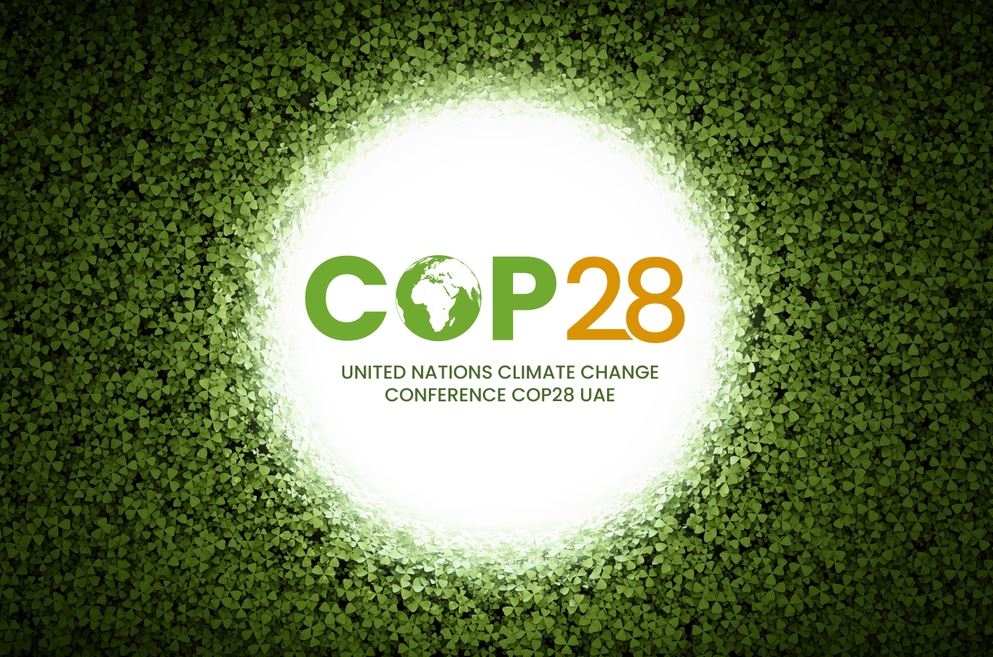COP28: Action at a national level
News
- Sustainability
12 December 2023

By Terri Quigley, IWFM Ireland Region
The COP28 summit in Dubai continues as the world faces a dangerous and worsening climate crisis. Greenhouse gas emissions are increasing, resulting in further extreme weather events, rising sea levels, diminishing resources and an increased risk of pandemics and climate migration. 2023 is of paramount importance, where signatory countries analyse their progress in relation to the goals set out in the legally binding Paris Agreement, which went into effect in 2016.
As far of IWFM’s reflections on the COP28 Conference, we have asked our international community to provide us with their perspectives. We kicked off the series of viewpoints last week, with an article from the Chair of our Sustainability SIG, Toby Morgan. The second item in the series, which will continue in the coming months, has been shared by the IWFM Ireland Region.
What is Ireland’s ambition for Climate Change mitigation or adaptation/meeting COP21?
In terms of national action, Ireland is fully committed to addressing the challenges posed by climate change and has set ambitious goals for both mitigation and adaptation. Our national ambition aligns with the objectives set forth in COP21. Ireland is dedicated to achieving net-zero carbon emissions by 2050 and has implemented comprehensive climate action plans to reach this target. In addition, Ireland's 2030 target under the Effort Sharing Regulation is to limit its greenhouse gas emissions by at least 42% by 2030.
How is Ireland changing? What is enabling that change?
Ireland is undergoing a significant transformation in response to the climate crisis, putting climate solutions at the centre of Ireland’s social and economic development. The Irish government’s Climate Action Plan 2023 (CAP23) is the second annual update to Ireland’s Climate Action Plan 2019 and the first to be prepared under the Climate Action and Low Carbon Development (Amendment) Act 2021. Key factors enabling this change include robust government policies, increased public awareness, and a growing commitment from businesses and communities. The Climate Action Plan outlines specific measures to reduce emissions across sectors such as energy, transport, and agriculture, fostering a sustainable and resilient future.
How are FMs getting to play their role?
Facility managers (FMs) in Ireland are pivotal players in our climate action initiatives. They are actively adopting sustainable practices in building management, energy efficiency, and waste reduction. FMs are leveraging innovative technologies and best practices to minimize environmental impact. Collaboration and knowledge-sharing within the FM community are fostering a collective effort toward achieving Ireland's climate goals.
In the last 12 months alone, the IWFM Ireland Region has supported learning, knowledge sharing and experiences through a range of open invite activities on topics such as Circular Economies in FM, Green Public Procurement, supporting developing of national and international standards including ISO 41019, membership of Special interest Groups including Sustainability, and Google’s Journey toward Carbon Transparency and Neutrality.
How are you seeing the changes filter through in your/FM projects?
In our FM projects, we observe a clear integration of sustainable practices. From energy-efficient building designs to waste reduction strategies, our projects reflect Ireland's commitment to environmental responsibility. The emphasis on renewable energy sources, green infrastructure, and circular economy principles underscores the tangible impact of climate-conscious decisions in our FM endeavours. The activities also support learning and provide tools and supports for our members and industry to implement across their portfolios.
Click here to find out more on IWFM's sustainability resources.
